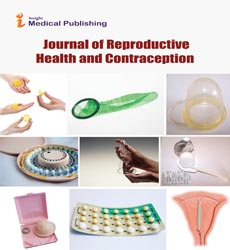Sex Disparities in Asthma Development and Clinical Outcomes: Implications for Treatment Strategies
Bright Nwaru
University of Gothenburg, Sweden
Published Date: 2022-07-28Abstract
A gender-related disparity exists in asthma morbidity and mortality, which shifts at around puberty from a male predominance to a female predominance. This is clinically reflected in the fact that asthma that occurs in childhood (childhoodonset asthma) mainly affects boys, and that asthma that occurs in adulthood (adult-onset asthma) mainly affects women. Adult-onset asthma is often non-atopic, more severe, and associated with a poorer prognosis, thus posing a marked burden to women’s health and healthcare system. Many factors have been indicated to explain this gender-related disparity, including sociocultural and environmental factors as well as biological sex differences (genetic, pulmonary and immunological factors). It has long been suggested that sex hormones may be implicated in at least these biological sex differences. Overall, the evidence remains equivocal for the role of most sex hormones in asthma pathogenesis and clinical outcomes. Well-designed randomized clinical trials are required assessing the potential preventive or therapeutic effects of hormonal contraceptives on asthma in women, thereby helping to advance the evidence to inform future practice guidelines. The mechanisms underlying the role of sex hormones in asthma are complex, and our understanding is not yet complete. Additional mechanistic studies elucidating sex hormone signaling pathways and their interactions involved in the pathogenesis and clinical manifestations of asthma will help to identify potential sex hormone-driven asthma endotypes and novel therapeutic targets, providing the basis for a more personalized asthma management strategy.
Open Access Journals
- Aquaculture & Veterinary Science
- Chemistry & Chemical Sciences
- Clinical Sciences
- Engineering
- General Science
- Genetics & Molecular Biology
- Health Care & Nursing
- Immunology & Microbiology
- Materials Science
- Mathematics & Physics
- Medical Sciences
- Neurology & Psychiatry
- Oncology & Cancer Science
- Pharmaceutical Sciences
